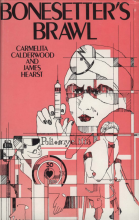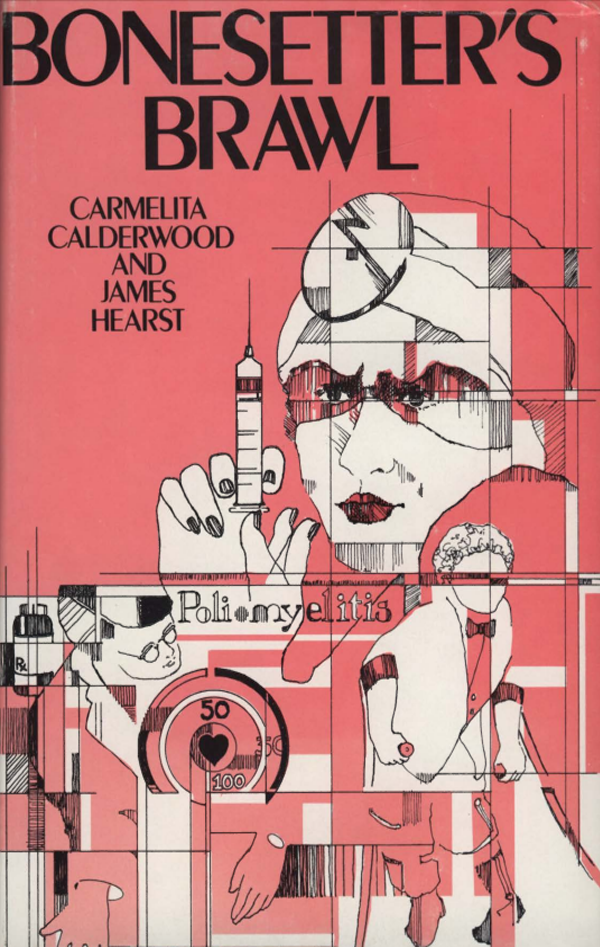Bonesetter's Brawl
The novel Bonesetter’s Brawl was originally an incomplete draft manuscript written by James Hearst’s first wife, Carmelita Calderwood. Set in the 1950s in the world of orthopedic nursing, which Calderwood knew well, the novel presents a riveting narrative describing a murder mystery in a university hospital during the 1940s. The plot unfolds to reveal the mysterious death of Dr. Josef Radetsky, a doctor who has been poisoned. The staff receive threatening letters in the mail and struggle to identify and fight an unknown killer while fighting poliomyelitis (polio).
Told from the point of view of a nurse called Peg, the novel unravels the intriguing and suspenseful details of a murder mystery. The plot thickens when one of the main characters is interrogated by the coroner, who is intent on implicating her in Dr. Radetsky’s murder. A series of unfortunate events unfold in the run up to an interesting twist ending.
Calderwood was married to James Hearst from 1944 until her death from cancer in 1951. Two years after her death, Hearst remarried Calderwood’s best friend and former roommate, Meryl Norton. It was Meryl who stumbled on the incomplete fiction manuscript, which was posthumously edited and published by James Hearst in 1979. The novel, though not a best seller, reflected Calderwood’s skills as a writer. James Hearst was determined to publish this novel after her death.
In setting Bonesetter’s Brawl in the world of orthopedics, Calderwood was writing about an area familiar to her. During her nursing career, she specialized in the treatment of polio and her much-republished textbook, Orthopedic Nursing, served as a very reliable source of knowledge for those devoted to this noble profession of caring for those in need.
This poem was written by James Hearst in memory of Carmelita Calderwood.
She sleeps as if the mouths of buds,
About to utter their gentle bloom,
Suspended breath lest an echo darken
The silence where she keeps her room,
And sleeps. The warm October sunlight
Holds in its hands the troubled year’s
Moments of grace before they wither
The asters, and leaves rain down like tears.
She seems to dream in the early shadow
Where a fountain trembles, she does not start
At the blackbird’s whistle above the cedars
Nor the tiptoe steps of my anxious heart.
I bow my head as the prayers attend her,
But heart, poor innocent, swells to make
A sudden gesture of warning to tell me
At the last farewell, she will not wake.
—Sermantha Louisy


